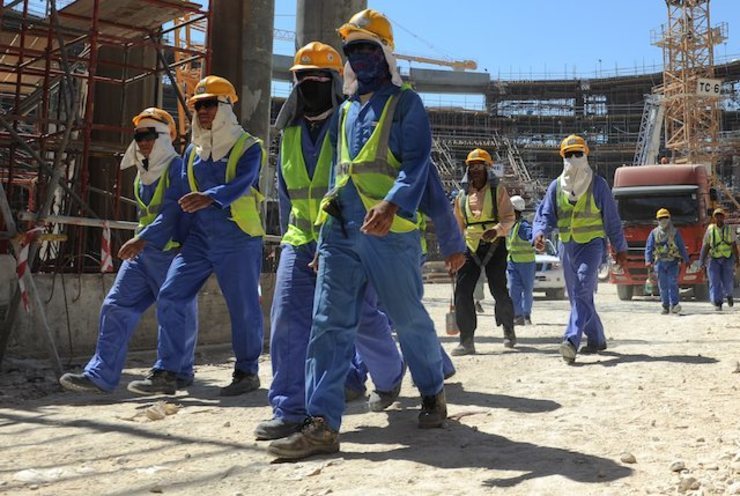Mr. Rapporteur,
Americans for Democracy & Human Rights in Bahrain would like to thank you for the important work of your mandate in combating migrant abuse worldwide. Yet we would like to call additional attention to the prevalence of human trafficking and ongoing and systematic abuse of migrant workers employed in the Gulf Cooperation Council.
GCC States use the kafala system of sponsorship-based employment, which legally ties migrants’ immigration statuses to their employers. Millions of low-wage Asian, South Asian, and African men and women incur debt to work in the GCC. Once there, employers subject migrant workers to excessive work hours, unsanitary living conditions, physical abuse, and deception regarding employment terms.
Saudi Arabia and Qatar have failed to abolish exit visa policies, mandating workers secure permission from their sponsor to leave the country. Although illegal, workers’ passports are often taken upon arrival; in Bahrain, police cannot enforce this law.
Workers’ accommodations are often cramped and unsanitary. Their employers often mentally and physically abuse workers. Migrants’ wages are a fraction of citizens’ wages, and are often delayed or withheld.
Domestic workers, mainly women, remain excluded from labor laws in Qatar, Oman, and the UAE, and receive minimal protection in Bahrain, Kuwait and Saudi Arabia. Bahrain fails to provide a minimum wage or limits on working hours. Many are physically and sexually abused. Those who flee their employers find themselves vulnerable to sex trafficking and forced prostitution.
We urge all GCC states to abolish the repressive kafala system as well as implement and enforce inclusive labor laws. Mr. Rapporteur, we ask whether any of these states have sought your guidance in addressing these issues, and could you comment on what steps GCC States should take to more effectively combat these abuses?
Thank you.





